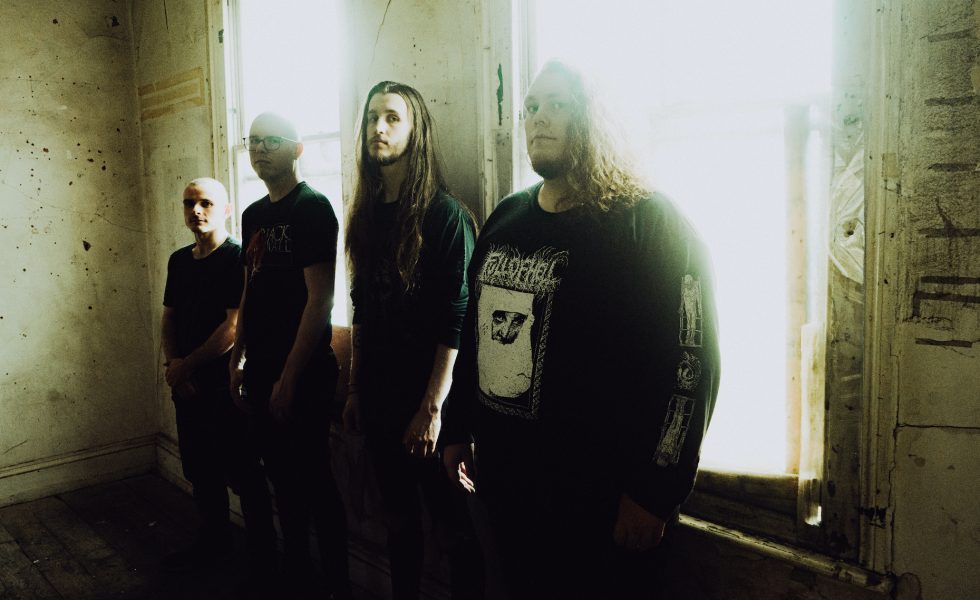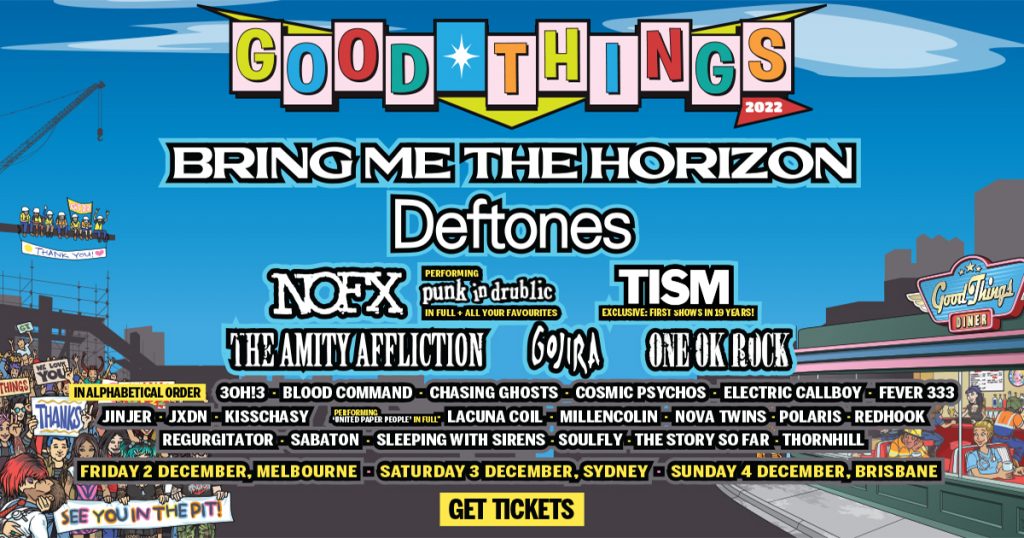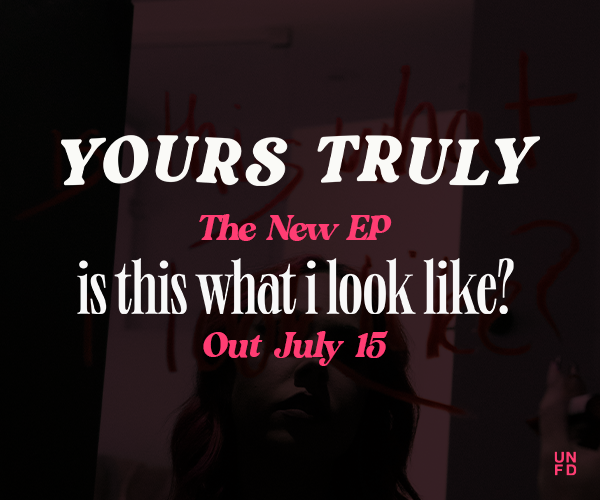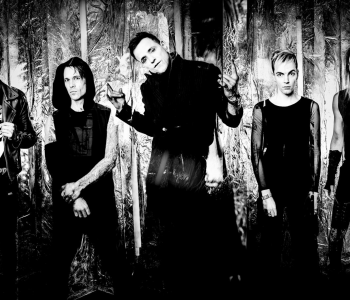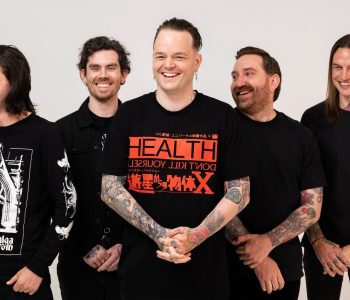Korn‘s Jonathan Davis was so excited by ORGY that he created his own record label …
British extremists Conjurer stumbled into the light with 2018’s crushing Mire and have since been lauded by some elements of the UK music press as “saviours” of the country’s metal scene.
MORE: SUNK LOTO: No More Anxiety // STEEL PANTHER: Bringing The Debauchery Down Under REVIEWS: RAISED AS WOLVES: Nervous Feelings // THORNHILL: Heroine // ALEXISONFIRE: Otherness // GREY DAZE: The Phoenix // JOYCE MANOR: 40 Oz. To Fresno // STAND ATLANTIC: F.E.A.R // TERROR PARADE: Revolution
In Australia for Hobart’s Dark Mofo festival on the eve of the release of their second album, Conjurer guitarist and vocalist Dan Nightingale doesn’t appear to have let plaudits of that kind have much effect on him.
“We’re just four boring people from the UK,” he says, then laughs. “We don’t have an image, we don’t have any sort of a backstory, we’re just four dudes that like to get together in a room and jam, and the fact that we’ve managed to get to Hobart, Tasmania, off the back of that, I think speaks volumes with how people resonate with this kind of music nowadays.”
The kind of music Nightingale is referring to is a difficult-to-categorise style of extreme metal that draws from an array of dark and heavy influences, as if Converge, Pallbearer, early Mastodon, Today is the Day and mid-90s Opeth all came together in a musical Hadron Collider.
“I understand why genre lines exist, but they’re really there as just a pointer to just the general kind of sound,” Nightingale offers. “Bands nowadays – it’s very rare that you get a band that’s just thrash metal or just death metal. There’s always something that’s being thrown in there, because I don’t think you can really get by without some sort of variation.”
Charting a sombre and mournful course through dark melancholia and sorrow, one could be forgiven for thinking that the new album Páthos was a direct result of the pandemic. While Nightingale admits it was difficult for that not to have an impact, the album’s stark examination of misery and desolation certainly also has other origins.
“We didn’t want COVID to taint the album at all,” he says. “I went into it thinking that I don’t want it to have any sort of effect. Whether COVID happened or not, in a hypothetical situation, we wanted the album to come out sounding exactly the same. But ultimately, when you’re holed up and you’re feeling that desperation and that isolation, it’s impossible to not let that affect you, or affect the music. We had all sorts of stuff going on over the past couple of years, as well. A lot of life changes, a lot of trauma. It all found its way on there. The album was going to be miserable anyway, but now it’s just extra miserable!”
When I was a kid, extreme metal seemed scary, but now it’s on the fringe and so untainted by mainstream interference it’s allowed for a lot more growth and experimentation and variation, and I think that’s why it’s impossible to be just a thrash band or a death metal band now. You’ve got to be bringing a lot more outside influences in, and that’s been a good thing for us.
[ Dan Nightingale ]
Conjurer’s doleful extremity has left many scratching their heads about where the band falls in the musical spectrum. Their own record label categorises Páthos as black metal, and while the vocals and occasional bursts of tremolo picking brandish the baleful malevolence of that genre, it seems a far too simplistic and erroneous description. Post-metal, dark ambience, sludge-ridden doom and Converge-style hardcore all colour the Britons’ palette.
“For years now we’ve, like many bands – and rightly so – tried to ignore the genre tag thing. When we started, we were like, ‘What are we? How do we define ourselves?’ For a little while we were like, ‘Well, we’re kind of post-metal with a bit of sludge, so we’re post-sludge?’’ He chuckles. “So we were calling ourselves that for a little while and then we thought, ‘That’s ridiculous. Let other people worry about that.’”
Their unconventional approach has found them playing a broad range of shows across various styles as bookers and promoters struggle to fit the band into a category. Nightingale just thinks it helps in their creative process.
“When we started out, no one knew where to put us. We were on doom bills, we were on black metal bills, we were on noise bills, we were on industrial bills, and it was great for us because it just added to the pool of influences,” he says. Dark Mofo is exactly the type of festival they’ve always hoped to play, a bill laden with acts that chart their own path.
“You’ve seen the line-up: Deafheaven, Katatonia, Lingua Ignota, stuff like that. That’s all the kind of stuff that we enjoy, and as much as it sucks that Deafheaven and Lingua aren’t playing anymore, they’re the sorts of bands we’d be honoured to be associated with. They’re bands that we really look up to, they’re flipping things on their head and they’re absolutely killing it at the same time. This is where I think we kind of belong, in a way.”
It almost wasn’t to be, thanks to the band’s other guitarist and vocalist Brady Deeprose falling sick after Conjurer had arrived in Australia. Fortunately, Deeprose was back on deck for their appearance at the Santae Noctis show the following night, an evening curated by Triple J’s Lochlan Watt that also featured Katatonia, Diploid, YVLA, R U N and more. A vastly diverse bill in anyone’s language. If any band could fit comfortably onto a show like that, it’s Conjurer.
“The kind of audience this festival attracts is the kind of audience I’ve been wanting to play to for a long time,” Nightingale says.
The more extreme end of the metal spectrum has surged in popularity and legitimacy over the past decade or so, which has allowed bands like Conjurer to get in front of much wider and more diverse audiences. Bands that once played on remote side stages at festivals late at night are now finding prime slots in the main arena instead.
“Since maybe the end of the aughts or the beginning of the 10s, that extreme metal and much more thinking person’s metal has become more and more widespread,” Nightingale suggests. When you look at the bills for shows like Hellfest, the amount of really, really extreme bands playing that. Me and our bassist Conor went in 2014 or so, and Behemoth had just released The Satanist and were playing in the blazing sunshine, we thought ‘This just isn’t going to work.’ It was 1o’clock in the afternoon. But they absolutely killed it. It was amazing.”
Conjurer now stands at the vanguard of a raft of newly emerging bands taking extreme metal to previously unexplored places. As metal keeps changing and people’s attitude toward it changes, as expectations of what it can be continue to evolve, Dan Nightingale knows that a band like his has a place.
“When I was a kid, extreme metal seemed scary, but now it’s on the fringe and so untainted by mainstream interference it’s allowed for a lot more growth and experimentation and variation, and I think that’s why it’s impossible to be just a thrash band or a death metal band now. You’ve got to be bringing a lot more outside influences in, and that’s been a good thing for us.”


